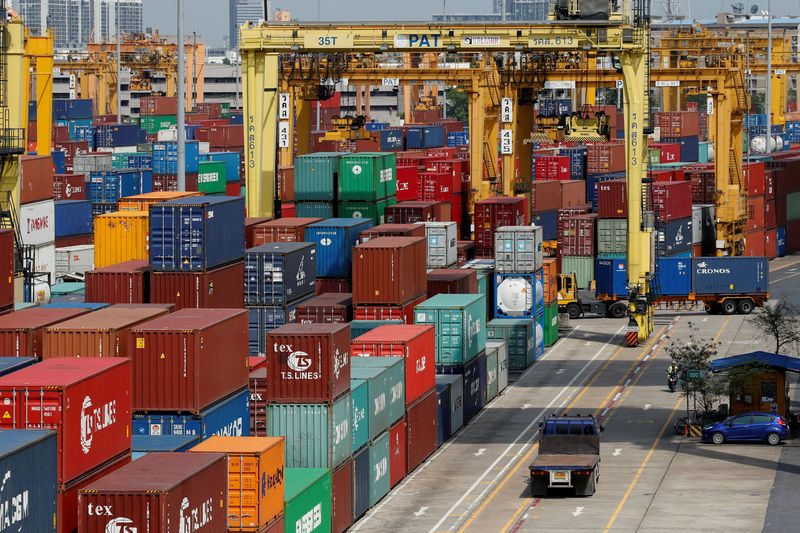Thai Q2 GDP growth slows sharply amid weak global demand, govt cuts outlook
2023.08.21 00:28

© Reuters. FILE PHOTO: A view of the port of Bangkok, Thailand May 26, 2016. REUTERS/Jorge Silva/File Photo
By Orathai Sriring and Kitiphong Thaichareon
BANGKOK (Reuters) -Thailand’s economy grew at a much slower-than-expected pace in the second quarter, data showed on Monday, as weak exports and slower investment undercut strength in tourism and prompted the government to downgrade its 2023 growth forecast.
Southeast Asia’s second-largest economy has been hobbled by slackening global growth, led by its main trading partner China and falling investor confidence due to a protracted period without a government following elections in May.
Thailand’s gross domestic product grew 1.8% in the April-June period from a year earlier, the National Economic and Social Development Council (NESDC) said, well below the 3.1% expansion expected by economists in a Reuters poll.
GDP had risen 2.6% year-on-year in the first quarter, revised down from 2.7% stated earlier.
On a quarterly basis, GDP rose a seasonally adjusted 0.2% in the June quarter, also sharply under a forecast rise of 1.2%.
The second quarter was hurt by export volumes falling 5.7% year-on-year and dragging manufacturing output down by 3.3%, while government spending also declined 4.3%.
The global demand weakness prompted the government to cut its 2023 GDP growth forecast to between 2.5% and 3.0% from a range of 2.7% to 3.7%.
Adding to the headwinds, NESDC head Danucha Pichayanan warned that investor confidence will suffer further if problems arise in the transition to a new government.
“If there are drastic events in the transition, it will affect investor confidence,” he said.
Thailand has been under a caretaker government for five months and faces prolonged uncertainty after the winner of the May election, Move Forward, was blocked from forming a government by conservative legislators allied with the royalist military.
On Tuesday parliament will convene to vote for a new prime minister when the second-place Pheu Thai’s candidate, real estate tycoon Srettha Thavisin, will be nominated.
First-quarter GDP was revised to 1.7% from an earlier 1.9% increase.
As weak global demand crimps exports, Thailand’s economy has been supported by its vital tourism sector and private consumption growth.
The agency maintained a forecast of 28 million foreign tourist arrivals this year, but expected tourism revenue to decline, Danucha said.
It projected exports to drop 1.8% in 2023 versus an earlier forecast for a 1.6% fall.








